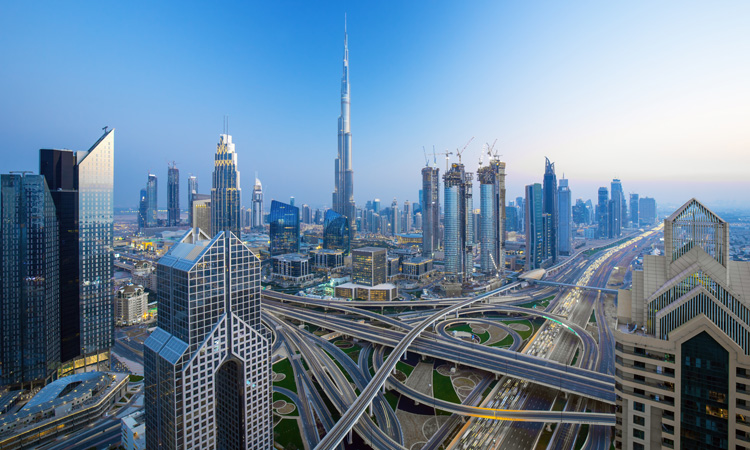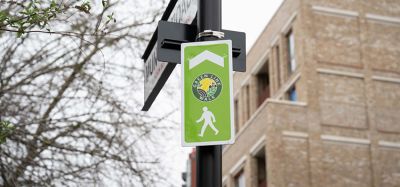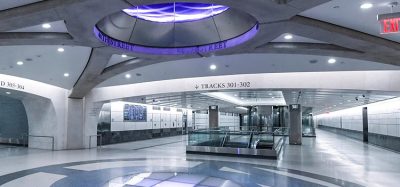Dubai RTA reaches new milestone in city’s drive for ‘Industry 4.0’ innovation
- Like
- Digg
- Del
- Tumblr
- VKontakte
- Buffer
- Love This
- Odnoklassniki
- Meneame
- Blogger
- Amazon
- Yahoo Mail
- Gmail
- AOL
- Newsvine
- HackerNews
- Evernote
- MySpace
- Mail.ru
- Viadeo
- Line
- Comments
- Yummly
- SMS
- Viber
- Telegram
- Subscribe
- Skype
- Facebook Messenger
- Kakao
- LiveJournal
- Yammer
- Edgar
- Fintel
- Mix
- Instapaper
- Copy Link
Posted: 16 June 2020 | Intelligent Transport | No comments yet
Dubai’s RTA has now completed 80 projects as part of its drive to digitise services for the fourth industrial revolution, including the 3D printing of metro parts, automated fare collection on marine transport services and the completion of a high-tech traffic management centre.


Dubai’s Roads and Transport Authority (RTA) has now completed 80 projects as part of its digitisation smart and fourth industrial revolution projects.
Nine of these projects were completed in 2019, among which are the 3D printing of metro parts, automated fare collection on marine transport services, the third phase of the nol Plus loyalty points programme, Enterprise Command and Control Centre (the city’s main traffic control centre), an interactive device for marine transport services, virtual driving, plus building expertise in data science, robotics, and smart routing.
RTA digitalisation efforts began 20 years ago as the government launched its ‘E-Government’ initiative. The subsequent projects and smart transformation of Dubai has made it a city that delivers effective services via advanced smart applications, not only in Dubai but across the UAE.
According to an RTA statement, the projects made it possible for government departments to ensure business continuity and deliver high-quality services during the COVID-19-enforced lockdown.
Commenting on the achievement, His Excellency Mattar Al Tayer, Director-General and Chairman of the Board of Executive Directors of Roads and Transport Authority (RTA), said: “RTA was among the first public entities to deliver all services through user-friendly and innovative smart platforms. It kept increasing and improving the quality of its smart services on offer. Thanks to those efforts, RTA now offers services via four digital channels and a website.
“Our smart services proved highly effective during COVID-19 lockdown. The number of digital transactions soared sharply by 40% compared to the same period last year. Equally, transactions carried out through Mahboub Chatbot doubled to 100%. Consequently, RTA’s happiness index of digital services clocked 90%, and customers use of digital and smart services rocketed by 300% during the National Disinfection Programme compared to last year.”
Fuller details of the works carried out to this point can be found below:
Data management
To build its expertise in data management, RTA trained a data science specialist and established the first lab dedicated to transport data science and artificial technology in the MENA region. Initially, it developed 16 user cases and trained 16 employees, with two employees obtaining Masters degrees in data science. The second phase of the programme will see a further 136 employees trained; some will pursue a Masters degree, and 86 user cases will be developed.
Monitoring systems
In the field of sustainable and smart transport, RTA established a link with 114 limo companies, seven e-hail companies, and two shared transport companies (hourly rental) using the Al-Merqab system, which streamlines and monitors the performance of limo and e-hail companies. The system is installed in 6000 limos operated by 114 firms and helped track 19 million e-hail journeys by Uber and Careem. RTA linked more than 10,000 taxis through a central monitoring and management system of surveillance cameras. It also installed smart cameras and dashboards for monitoring the attitude of taxi drivers.
Among the projects completed in 2019 was the implementation of an automated fare collection system (digital nol) for marine transport systems. The system is installed in 20 marine transport stations and has completed more than a million transactions to date. RTA also installed 100 solar-powered nol card top-up machines which have so far processed more than three million transactions.
Smart route
RTA’s improvements in infrastructure and smart vehicles included the smart route system for testing drivers, which has seen 800 transactions. The system reduced the time of retrieving video recordings of driver testing by 75 per cent, enabling the development of 10 new guidelines for improving the quality and governance of testing. The system also reduced the time of reporting accidents and vehicle faults by 75 per cent.
The smart route uses artificial technologies, internet of things, facial-recognition technology, 3D panoramic photography and GPS, among others. More than 2,000 people were tested through the virtual driving system with a success rate of 79 per cent.
About 3,000 transactions were processed through a trial parking booking system, while the nol Plus loyalty points system processed approximately 86,000 transactions, while attracting 6,635 subscribers by the end of 2019.
In terms of artificial intelligence, the Mahboub Chatbot fielded around 245,000 enquiries, helping reduce the number of calls to the call centre by 40 per cent. Elsewhere, Pepper – an RTA-purchased robot – delivered eight orientation workshops for new employees, and three training workshops for drivers, attended by 30 drivers.
Related topics
Artificial Intelligence, Passenger Experience, Staff & Skills Development, Ticketing & Payments
Related organisations
Dubai Roads and Transport Authority (RTA)
Related people
HE Mattar Al Tayer








